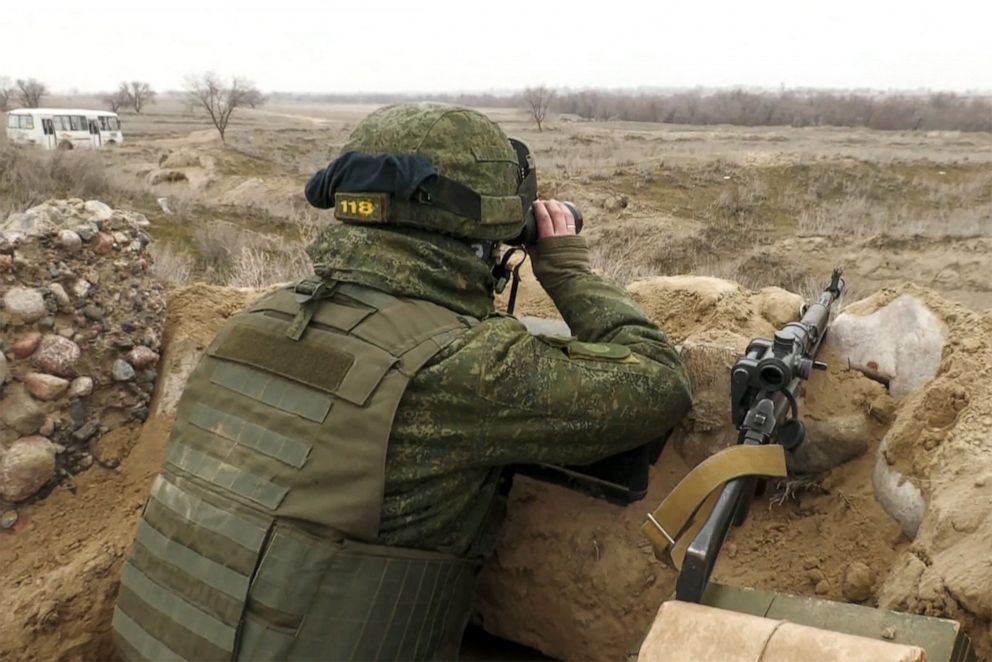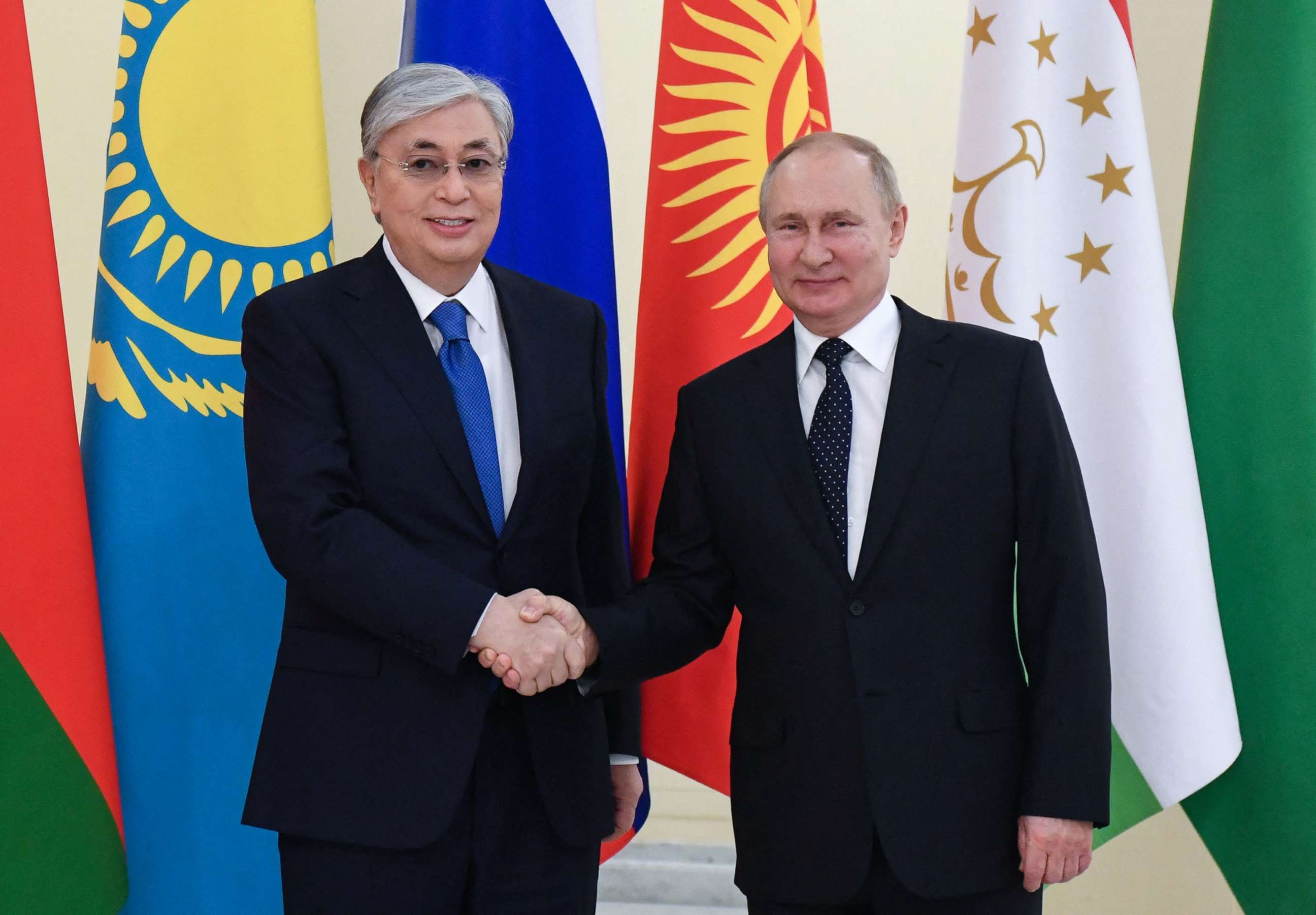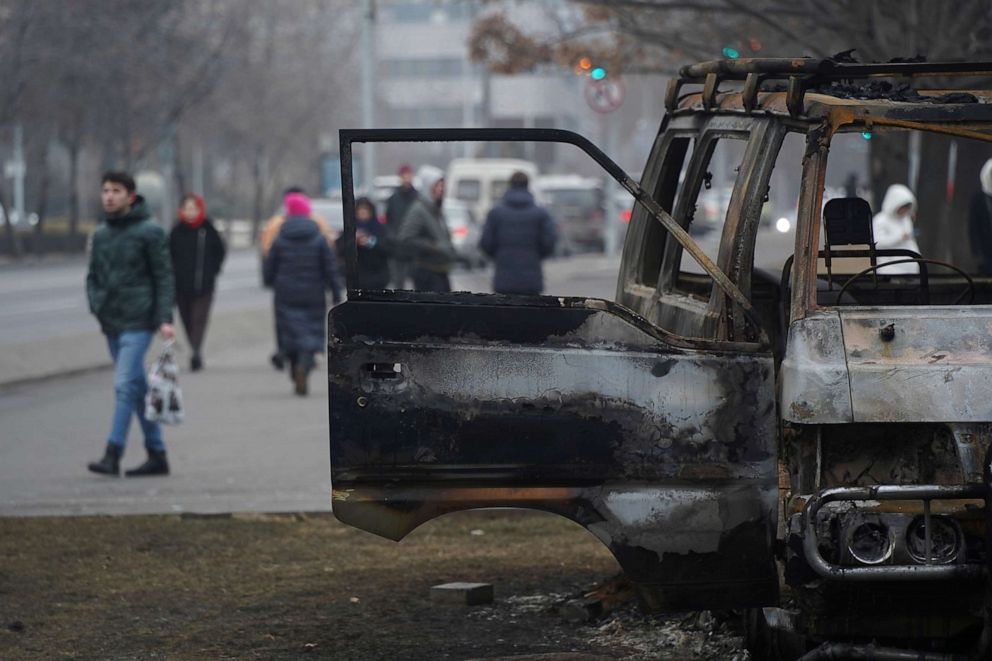Kazakhstan's president says Russian troops to start leaving this week
President Kassym-Jomart Tokayev said the Russia forces mission was complete.
Russian-led troops sent to help quell protests will begin leaving Kazakhstan in two days now that the government is back in control, the country's president has said.
President Kassym-Jomart Tokayev in an address to Kazakhstan's parliament Tuesday said the troops, deployed by the Moscow-dominated military alliance, the Collective Security Treaty Organisation at his request last week, would start a phased withdrawal that would finish in no more than 10 days.
"The main mission of the CSTO peacekeeping forces has been successfully completed," Tokayev told lawmakers. He said that the situation was now stable in all regions of Kazakhstan.

The Russian-led alliance sent troops late last week to Kazakhstan as violent protests saw Tokayev's authoritarian government lose control over its biggest city, Almaty. Russia sent the largest contingent, deploying paratroopers units with armored vehicles, backed by several hundred soldiers from the other former Soviet countries in the alliance: Belarus, Armenia, Kyrgyzstan and Tajikistan. Tokayev has said the force numbers around 2,300 troops.
In recent days, Tokayev's security forces have forcibly regained control in Kazakhstan, using live fire to end the uprising in Almaty and arresting nearly 10,000 people. The unrest saw at least 164 people killed and over 2,000 injured, according to authorities.

The Russian-led troops have not been used in combat or in direct clashes with protesters, according to the authorities, who say instead they were used to guard key facilities, including Almaty's airport which was overrun by protesters. Tokayev has said the arrival of the foreign forces freed up his security forces in the capital Nur-Sultan to help quash the unrest in other regions.
The Russian intervention had worried Western countries that have expressed fear the Kremlin's forces might remain indefinitely and that Kazakhstan could find its independence eroded.
The U.S. Secretary of State Antony Blinken this weekend told reporters, "I think one lesson in recent history is that once Russians are in your house, it's sometimes very difficult to get them to leave."
Russia's president Vladimir Putin a day earlier has insisted his troops would "without question" leave as soon as their mission was complete.
Life was slowly returning to some normalcy in Almaty on Tuesday, although the city remained under heavy guard by security forces. Troops are posted at key buildings and checkpoints, stopping people and examining their phones for signs they may have taken part in the protests, according to an ABC reporter on the ground.

Tokayev on Tuesday announced his picks for a new government, including a new prime minister. The lower house of parliament quickly approved Tokayev's acting prime minister, Alikhan Smailov, to the the post. In a special session of parliament, Tokayev also promised to launch broad reforms to overhaul Kazakhstan's government and tackle economic problems in the country -- addressing concerns that led to the protests. The unrest was triggered by a sudden hike in fuel prices, and came amid wide discontent with rising prices on basic goods and stagnant wages that have worsened with the pandemic.
Tokayev said his government would announce a new packet of measures within two months aimed at tackling inflation and raising incomes.
He also declared he would radically improve Kazakhstan's security forces to prevent a repeat of last week's unrest, promising to increase the number of special forces units in the police and create new ones in the national guard. He also promised to announce in September a packet of political reforms, saying Kazakhstan would "continue a course of political modernisation."




